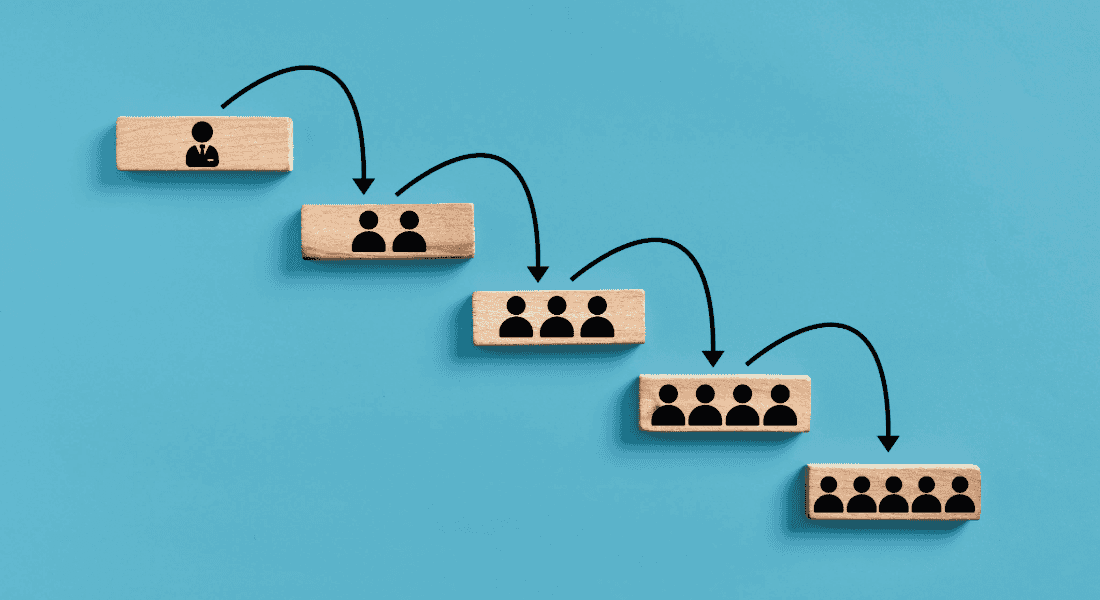Eustress vs. Distress… What does it mean?
When we talk about your health and the enjoyment of your life weighed against the stress required to run your own business, what we’re really talking about is eustress vs. distress.
They’re two different forms of stress, and stress is what today’s blog is all about. Because particularly in a market like this one, stress is a major issue for real estate agents.
But here’s the main thing you need to take away from this blog: as a real estate agent (or a human being in general), stress is unavoidable, but the type of stress you feel is what makes all the difference.
Thanks, Tom, but that doesn’t really explain what eustress is…
Don’t worry! Because we’re going to explore what it is, why it’s important, the negative effects of its counterpart, and what you can do to shift distress into eustress.
But first, let’s start by establishing the full scope of what we’re dealing with here…
What is a Stressor?
At the most basic level, a stressor is something that causes a state of strain or tension.
But you knew that right? As a real estate agent, you probably have a million different stressors in your life right now. So why is this so important?
Because of what strain and tension actually mean when comparing distress and eustress.
Do you realize how powerful strain and tension are? They’re what you’re putting your body through when you exercise, making yourself happier, healthier, and stronger. But they’re also what happens to your body when you’re in a car accident or come down with a virus. The difference is the level and the type of stress.
It’s important to recognize that stress isn’t a one-size-fits-all thing. It’s a spectrum.
You need stress to get things done and live a happy, purposeful life – you just need the right type and the right amount or everything goes wrong.
What is Distress?
Distress is a destructive version of stress that’s become unmanageable and frankly unproductive.
All the way on the right side of the spectrum you have distress – an emotion that was once reserved for helping us escape predators in the wild but has now worked its way into just about every situation in our lives. Our bodies and minds are not meant to feel this kind of distress constantly.
Do any of these sound like you?
- Full of anxiety and worry
- Tired in the morning and sleepless at night
- Don’t feel motivated to make your calls or meet new people
- Craving junk food
- Constant brain fog
- The pressure is too much
If you said yes to one or more, you’re likely living in a state of distress, which if left unchecked could have serious consequences down the road and even lower your life expectancy.
But if stress is a spectrum, there must be a better option…
What is eustress?
So, what is eustress? Simply put, eustress is the positive version of stress which motivates you and fills you with energy instead of tearing you apart.
Eustress doesn’t have any negative health consequences. In fact, it actually fills you with more energy and often encourages behaviors that make you live longer. People who live in a constant state of eustress almost always exercise more and even eat better – because they’re MOTIVATED to!
It forces you to step out of your comfort zone in an exciting way and become the best version of yourself. It lifts you up instead of crushing you, and gives you dreams of a great future instead of nightmares of potential failure.
People don’t succeed without stress, but what separates high achievers from everyone else is that they’ve found a way to tap into eustress to eliminate their anxiety and keep pushing forward.
So, if it’s always a battle of eustress vs. distress, how can you tap into eustress more often?
I have a few ways…
Tapping into Eustress, Tip 1: Learn Something New
This year has been off to a CRAZY start… I’m soaring around the country on my Roadmap Tour, launching a ton of new business ventures, meeting with coaching members every day, and still finding time to be fully present for my family and the people I love.
But did you know that I’m also working on learning Spanish? Sounds ridiculous to add that on top of everything else, right?
Actually, now is the perfect time, because the first step of moving from distress to eustress is to keep your mind in a state of receptive learning. In Zen Buddhism, they call this “Beginner’s Mind.”
But I’m not saying you need to learn a language… Actually, learning something new related to your business is even better. And lucky for you, this website is absolutely PACKED full of real estate agent tools and resources for that.
What’s something you’ve always wanted to try but didn’t know where to start? Hosting better Open Houses? Geo farming? Direct mail? Click those links to get free guides that show you how top agents are making big money using these lead gen systems.
Tapping into Eustress, Tip 2: Get Out of Your Comfort Zone
But Tom, if I’m already distressed, wouldn’t going farther out of my comfort zone just make it worse?
It depends on what you’re going out of your comfort zone for… If it’s for chasing the same old thing without thinking it through then yeah, it might. But if it’s to gain inspiration, support, and experience, then that’s the fast track to eustress.
This is exactly the reason I’ve been constantly on the road this year… because agents need to transmute distress into eustress more than ever right now and Tom Ferry events are one of the best ways to do it.
Going to an event is a way to meet new people, focus on the present, see something you’ve never seen before, and absorb the energy of a room crowded with high achievers.
My events are the most popular and highly rated in all of real estate, so if you’re looking to tap into eustress, there’s a perfect option for you.
Tapping into Eustress, Tip 3: Take Your MEDS
If you follow my content, you’ve probably heard this one before, but it needs to be repeated over and over and over again.
It all comes down to the fundamentals – your MEDSS:
- Mediation
- Exercise
- Diet
- Sleep
- Supplements
At its core, stress is a result of either dopamine or cortisol. Eustress is triggered by mostly dopamine and a little cortisol. Distress is the symptom of too much cortisol and not enough dopamine.
A lot of people think that dopamine is a “feel-good” neurochemical, but that’s not really true. Dopamine is about motivation because it’s the reward your brain gives you for doing something good. But there’s a difference between good dopamine and bad dopamine. Good dopamine comes from completing a task and coming up with creative solutions. Bad dopamine comes from junk food, TV, and dangerous prescriptions.
Incorporating meditation, exercise, a healthy diet, and at least eight hours of sleep into your schedule is the most proven way to reduce cortisol in the brain and heal your dopaminergic system.
Robert Butler of the National Institute on Aging has said: “If exercise could be packaged in a pill, it would be the single most widely prescribed and beneficial medicine in the nation.”
And Rutgers University conducted a study that found that people who frequently meditated experienced a 50% reduction in cortisol levels.
So if you’re looking to transmute your distress into eustress, adjust your morning routine: you need to take the time to take your MEDSS.
Eustress vs. Distress: It’s a Choice
Just like anything else in life, the type of stress you feel and its effects on your health are the results of your behaviors. What you do is often what you get. If you have anxiety but you’re not seeking help, meditating, or expanding your mind, then I don’t know what to do for you.
Normally on lists like this, I’d tell you to choose one of the above and run with it, but in this case, I don’t think just one is enough. You need all three – this perfect trifecta – to free yourself from distress and light the fire in your belly that propels you forward (and if you need help, you know where to find us).
I hope that this has been a good start.



